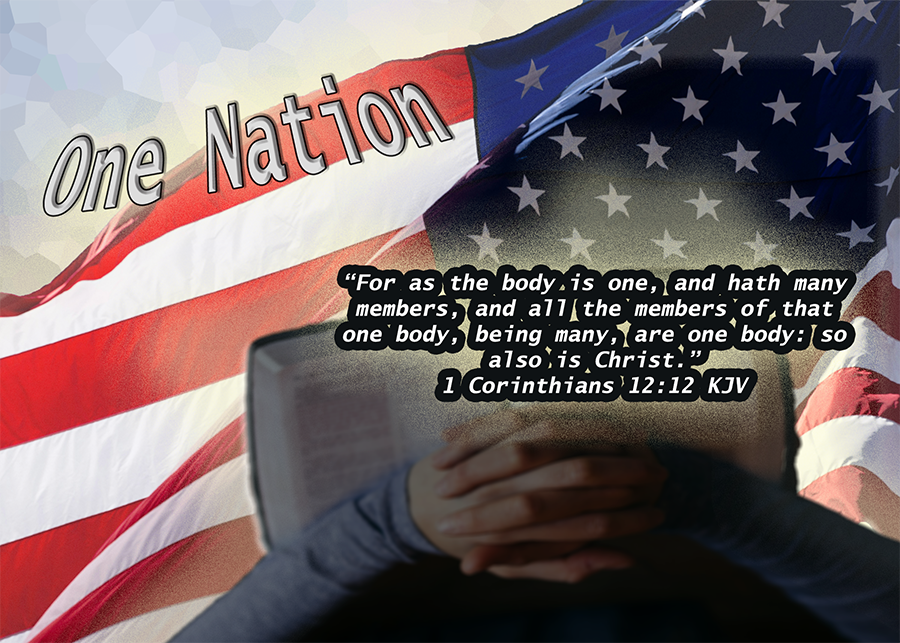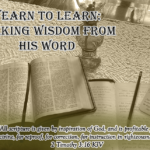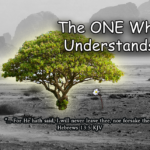My children have been involved in multiple team sports throughout their youth, especially my son, who has played baseball since the age of two. And one principle that their coaches have consistently cultivated is playing as a team. For example, instead of nine individual players, there is one team. One player does not win or lose the game. The pitcher might almost throw a perfect game, but all his teammates strike out. When asked about the outcome, the pitcher would not say, “They lost.” Because they are a team, he would say, “We lost.”
A bit ago, in studying the book of Daniel, I was taken aback by Daniel’s humility. Exiled to Babylon during the invasion, Daniel remained loyal to God, refusing to compromise his beliefs and continuing to pray faithfully despite the consequences of doing so (see Daniel 1, 6 KJV). But in Daniel 9, Daniel prays to God, confessing the sins of Israel and asking for God’s mercy, and in that prayer, he uses the word, “we.” He had not turned away from God, yet he included himself with the rest of his people.
Recently, I continued my study moving into the book of Ezra. Some of the exiles have been allowed to go back to their homeland as well as rebuild the temple (see Ezra 1 KJV). Later, in chapter 7, Ezra the priest returns to Jerusalem intending to teach and guide the Israelites according to God’s Word. In Ezra 7:10, we are told, “…Ezra had prepared his heart to seek the law of the Lord, and to do it, and to teach in Israel statutes and judgments” (KJV). However, in Ezra 9, we learn that after all they have suffered because of their unfaithfulness, the Israelites have again broken God’s commandments. It is revealed in Ezra 9:1 that, “…The people of Israel, and the priests, and the Levites, have not separated themselves from the people of the lands, doing according to their abominations…,” and Ezra 9:2 further details, “…they have taken of their daughters for themselves, and for their sons…” (KJV). So, after being exiled and punished by God for not turning from their evil ways, God has now extended them mercy and allowed them to return to their homeland, only for them to go right back and intermarry and join hands with those practicing paganism and abominations to the Lord (see Ezra 9).
Remember, Ezra came to guide and instruct them, so he did not take this news well. According to Ezra 9:3, he rips his clothes and pulls out his hair (KJV). And then in Ezra 9:6, Ezra prays, “…O my God, I am ashamed and blush to lift up my face to thee, my God: for our iniquities are increased over our head…” (KJV). Ezra is not guilty, but he confesses before God including himself with the Israelites. And Ezra is so distraught about the spiritual state of his people, that as he prayed, he was “…weeping and casting himself down before the house of God…” (Ezra 10:1 KJV), and later, “…he did eat no bread, nor drink water: for he mourned because of the transgression of them that had been carried away” (Ezra 10:6 KJV).
In reading these verses, absorbing the genuine concern of Daniel and Ezra for the spiritual state of their people, my mind drifted to the spiritual state of our country. As Christians, do we pray for our country with that same concern, perplexed by choices that do not comply with God’s Word? Do we take responsibility in our prayers confessing and asking for help as one nation? Would we ever be so distraught that we would audibly weep or not be able to eat?
Let us follow the example of Daniel and Ezra, and pray from the heart, connected as the body of Christ for the spiritual condition of our people and for God’s guidance in the decisions of our leaders.



